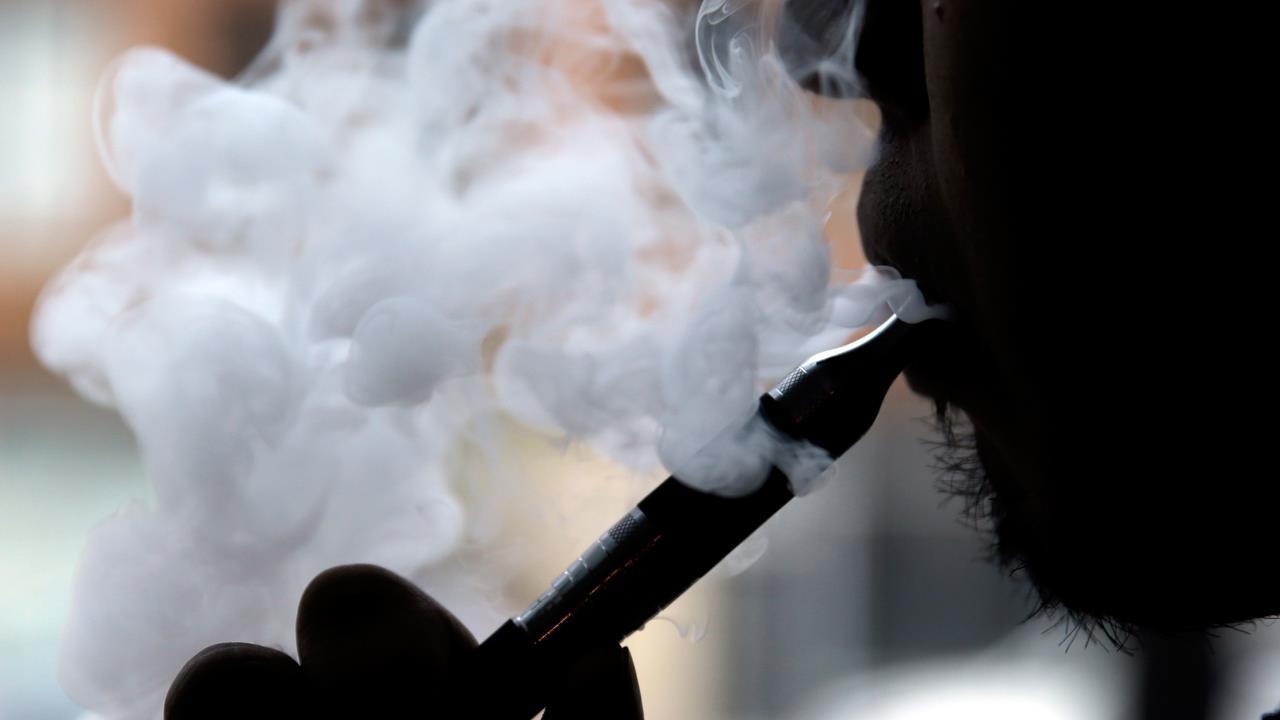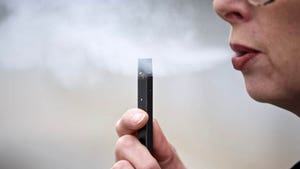Risk of teen vaping doubles with in-store ads, pediatricians say
Joe Camel may be dead, but the marketing strategy that gave birth to him is still alive.
The shades-wearing dromedary, introduced in the late 1980s and lambasted as a blatant ploy by cigarette-maker R.J. Reynolds to make its Camel brand more attractive to teens, was pulled in 1997 when the Federal Trade Commission reopened an investigation into the ad campaign.
More than 20 years later, a study published by the American Academy of Pediatrics shows ad campaigns by e-cigarette makers are having a similar affect on 21st-century teens. Adolescents who see in-store promotions for the devices, which let users inhale nicotine-infused vapors from candy-flavored pods of liquid, are twice as likely to start vaping within several years, according to the report from researchers at the University of Texas and the University of North Texas.
Released amid growing concern about the health effects of vaping devices, including a rash of lung-related illnesses and deaths and a lawsuit by North Carolina's attorney general, the study used data on 2,288 youths ages 12 to 17 and 2,423 adults from 18 to 29, according to the pediatrics organization.
Some 14 percent of the teens tracked in the two-and-a-half years of the study started vaping, the study found. More than half reported seeing e-cigarette ads in retail stores.
While smoking traditional cigarettes has reached an all-time low, e-cigarettes are now more popular than their paper-rolled predecessors, according to Alexandra Loukas, a professor of kinesiology and health education at the University of Texas.
"Their popularity actually took us by surprise," she said in a video posted on the school's website, raising concerns that if the devices aren't regulated quickly, "we're going to have a whole new generation of individuals addicted to nicotine, but just through a new delivery device."
The U.S. Food and Drug Administration, which regulates tobacco sales, began cracking down on the sale of e-cigarettes and vaping devices such as those manufactured by Juul Labs, to minors last year.
"Juul use among adolescents has reached epidemic proportions, and I see the impact of this every day in my own practice," pediatrician Dr. Jonathan Winickoff said in testimony before the House Oversight Committee in July.
"Many of my patients have wildly incorrect beliefs about e-cigarettes," added Winickoff, who practices at Massachusetts General Hospital. "I have to explain to kids that e-cigarettes do not have the same positive health benefits as the fruits whose flavors they copy. Even the term vapor calls to mind harmless water vapor. There is no water in these products."
Two months earlier, North Carolina Attorney General Josh Stein filed a lawsuit accusing San Francisco-based Juul of targeting kids with its products, promoting them through social media and using flavors designed to appeal to young people.
Each Juul pod contains nicotine and an array of toxic chemicals including formaldehyde, arsenic and aceotone, his office said, citing health risks including changes in the brain, lung inflammation and respiratory disorders.
Juul has promised to fight under-age use of its products while making them appealing to adults trying to stop smoking traditional tobacco.
On Friday, the U.S. Centers for Disease Control and Prevention urged people to avoid e-cigarettes until the agency finishes investigating more than 450 possible cases of lung illness linked to e-cigarettes as well as five deaths.





















